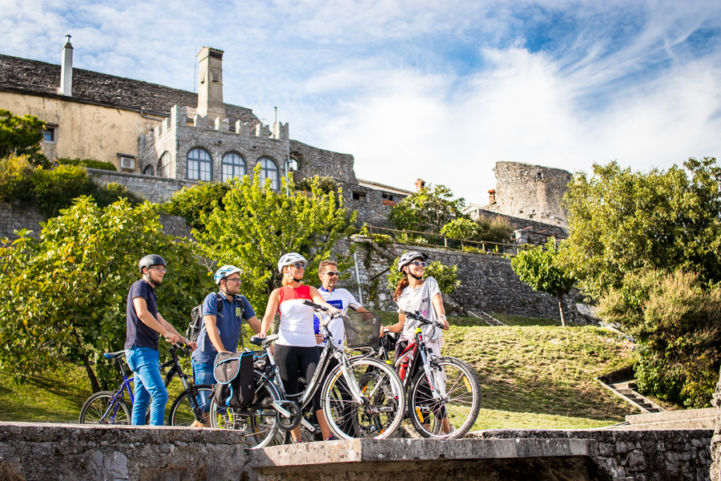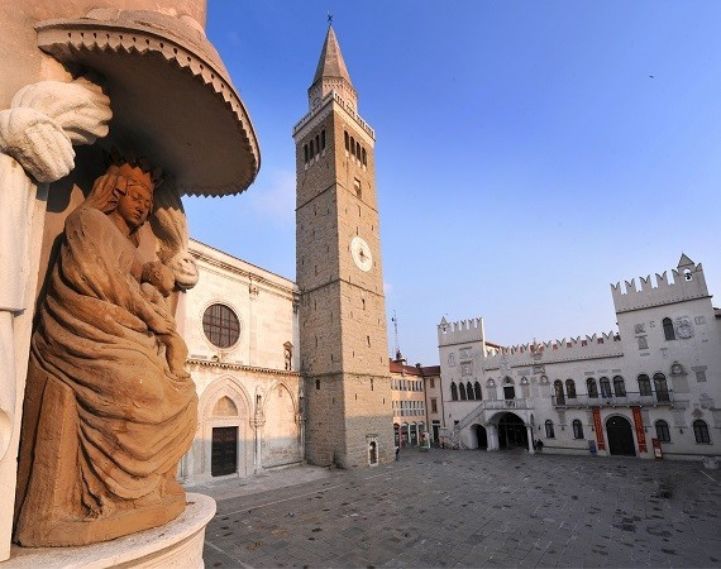Slovenia becomes the 22nd country with National EuroVelo Coordination!
Led by the Ministry of Infrastructure, the Slovenian consortium consists of 10 organisations, among which are public bodies (Slovenian Infrastructure Agency, Ministry of Economic Development and Technology and Slovenian Tourist Board), NGOs (Association for Hiking and Cycling, Slovenian Cyclists’ Network – which is an ECF member –, Alpine Association of Slovenia – Tour Cycling Commission and Cycling Association of Slovenia) and a public transport company (Slovenian Railways Passenger Transport). As the Slovenian National Coordination is made of a consortium incorporating representatives from different kinds of organisations, it constitutes a Coordination Centre, with a wider range of actions and more impact than a National EuroVelo Coordinator (consisting of only a single organisation).

This consortium was founded at the end of 2019, on the basis of many achievements of the last few years in the fields of EuroVelo, cycle tourism and cycling route development in Slovenia. Recent successes include the development of continuous and safe cycling infrastructure along EuroVelo 8 – Mediterranean Route in the frame of the MEDCYCLETOUR project, preparations for signing the EuroVelo routes crossing the country in 2020, the realisation of the national website eurovelo-slo.si, the establishment of a Network for Cycling Friendly Services, etc.

From 2020 onwards, the consortium’s partners will cooperate on further developing the EuroVelo routes in Slovenia and promoting them, with each partner having specific aims and objectives corresponding to their areas of expertise. In particular, the consortium will look at improving the transport of bicycles in the trains by enlarging capacities for bicycle carriage and parking facilities for bikes at railway stations, and extensive networking and lobbying activities will be done to gain extra funds for cycling infrastructure and answer to more project proposals.

With the establishment of this new National EuroVelo Coordination Centre, Slovenia is joining 21 other countries, now totaling 23 National EuroVelo Coordination Centres and Coordinators (NECC/Cs) across Europe. The complete list of NECC/Cs can be found on this page. NECC/Cs ensure the implementation and operations of the EuroVelo network at a national level, including monitoring the quality of EuroVelo routes in their country. Additionally, they are responsible for promoting the EuroVelo network among the national audiences and answering users’ questions with the detailed information available to them.
Three EuroVelo routes are crossing Slovenia. The Slovenian part of EuroVelo 8 – Mediterranean Route is short but beautiful, taking you through old cities and villages, along the sea and among vineyards and olive plantations. Make sure to visit Koper with its fantastic architectural heritage and the old fishing town of Izola along the way. EuroVelo 9 – Baltic-Adriatic is the longest cycling trail of its kind in Slovenia, starting in the vineyards on the Austrian-Slovenian border and ending at the seaside border with Croatia. The route crosses historic cities like Maribor (European Capital of Culture in 2012) and Ljubljana. Last but not least, EuroVelo 13 – Iron Curtain Trail crosses a small area in the northeastern part of the country, passing through a region known as Prekmurj, shared by Slovenes and a Hungarian minority.
The ECF is looking forward to a fruitful collaboration with the Slovenian consortium in the years to come, as Slovenia, with its gorgeous mountainous landscapes meeting the seaside, certainly has a lot to offer to cycle tourists! The further development of the EuroVelo routes is expected to form a backbone to the national, regional and local cycle route network in the country for the benefit for local people as well. We look forward to find out more during the Velo-city conference due to be held in the Slovenian capital Ljubljana later this year.
Author(s): Florence Grégoire